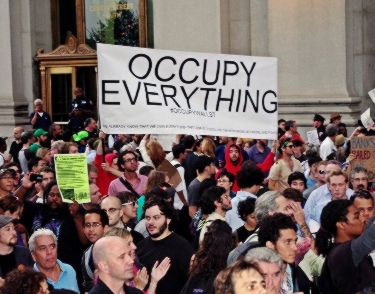What do Indonesia's General Suharto and Italy's Silvio Berlusconi have in common? Both were corrupt national leaders who stayed in office too long and finally lost power as a result of financial crises. These kinds of crises are ugly and painful, but often bring about overdue reforms and lead to positive long-term outcomes. As you might have heard your doctor say, "this might hurt a little." But do you run out of the doctor's office, or take the pain to get the gain?
In the middle of a financial crisis, things look pretty alarming. Earlier this week, Dan Drezner referred to "the collapse of the euro and maybe the entire global economic system." But the pain and fear are what catalyzes change. The "creative destruction" of capitalist crashes, described by economist Joseph Schumpeter, has its political equivalent. Barack Obama owes his presidency in no small part to an economic collapse caused by the previous administration's unwise policies (like going to war while cutting taxes). Others have also found openings for change and reform when things fall apart.
Consider the 1997 Asian financial crisis, which tore through Thailand, Indonesia, and South Korea like an unstoppable tsunami. In Indonesia the collapse of the currency led directly to inflation, and thus popular unrest, that unseated the dictator Suharto after more than 30 years in power. Since then East Timor became independent, a peace agreement ended the secessionist war in Aceh province, and Indonesia has developed a pretty robust democracy and solid economy that survived the global recession in good shape and has resumed 6 percent growth.
In 1997, South Korea, still in transition after decades of military dictatorship, had a terrible economic setback. The currency fell dramatically, economic growth reversed and went negative, and people across the country suffered. But in short order the country elected a new reformist president, opposition leader Kim Dae Jung, and got onto a better path. Look back at the graph of South Korea's economic growth now, 15 years later, and you see just a short drop and a return, four years later, to the same impressively steep growth rate that made South Korea an economic miracle. (GDP per person has grown from about $6,000 to $25,000 in the last 30 years.)
Remember Argentina in 2001-02? It had a massive debt crisis, so big that experts feared it might default and send the world's financial system into a meltdown. Well, it did default on $132 billion in sovereign debt, but the global capitalist system took it in stride. In 2003, Nestor Kirchner took over as president and has presided over an impressive period of recovery and growth. The banks got screwed -- in 2005 they were offered a take-it-or-leave-it deal for less than 30 cents on the dollar for Argentina's debt, and most took it. But am I crying big tears for the poor banks? Nope.
Greece needed a new government and it got one. As prime minister, the technocrat Lucas Papademos this week replaces the old politico George Papandreou whose grandfather and father were prime minister before him. I mean, enough is enough. It was all high-drama politics, and a big mess, but look what came out of it -- change.
Italy has needed a new government for quite a while, and it too will get one. And the European Union has needed a new way to deal with the contradiction at the heart of the euro currency -- the crazy idea that sovereign states can control their individual fiscal policies (taxation and budgets) while merging their monetary policies (currency and inflation). I don't know what solution is going to emerge, but I do know that it won't happen without the kind of big crisis we're in the middle of now.
Folks, this is the way the world works. Change is not incremental and it doesn't happen when everything's going smoothly. Small comfort, perhaps, if you're unemployed or can't afford spiraling prices, or just lost your savings in a stock market crash. But in the long run, it's for the best -- just ask the people in Indonesia or Argentina. In the short term, though, this might hurt a little.

